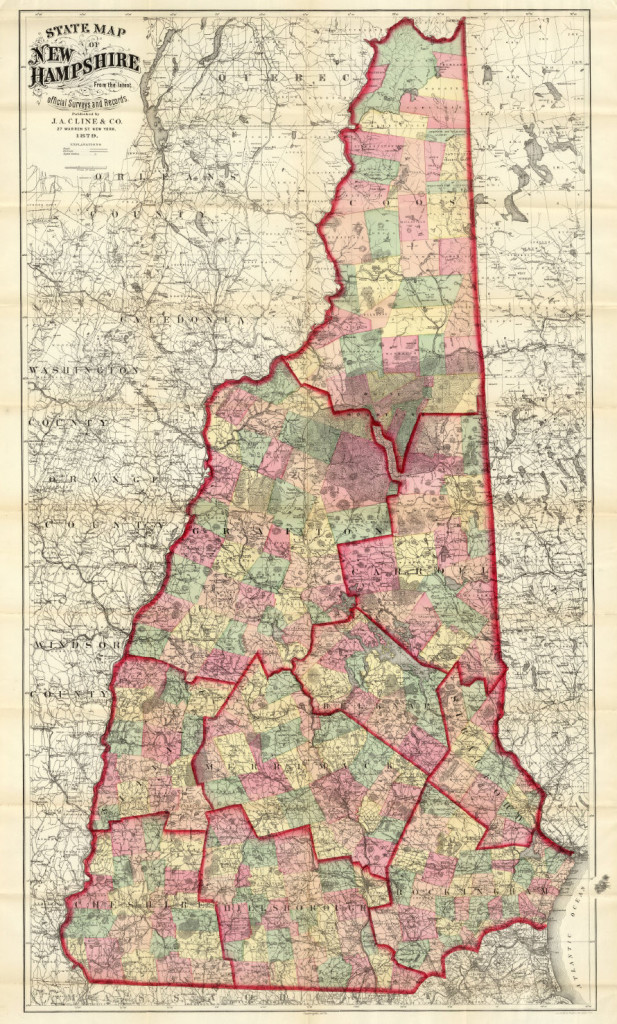 With less than 24 hours to go until the New Hampshire primary begins, the latest poll shows Donald Trump leading decisively with 34% of Republican voters supporting him, while Ted Cruz and Marco Rubio are tied at 13%. The rest of the Republicans are at 10% support or less, with 9% of GOP voters being undecided.
As one of the first to read the article linked above (seen via the Drudge Report) the comment I left gained some traction. My observation:
“I’m deeply skeptical about these polls. If Trump doesn’t win decisively in NH it should raise an alarm. A variety of attempts have been made to take Trump down and polling manipulation may be the next stage.”
According to polls Donald Trump was projected to win Iowa by about 4%, but ultimately he lost to Ted Cruz by the same margin. Polls aren’t expected to be perfectly accurate, but they should serve as a general measure of people’s support for candidates and issues. This ideal doesn’t always match reality though.
Polls can be and are manipulated to help shape the outcome of events rather than honestly gauge what’s really happening. Nowhere is this more true than with immigration where poll respondents are often given two options, essentially between draconian enforcement of the law and deportation of violators on one hand, or a reasonable-sounding approach that ultimately leads to amnesty on the other. Public policy never presents such limited options, but poll responses to narrow questions can be used to shape the argument for certain positions that otherwise aren’t widely supported.
With less than 24 hours to go until the New Hampshire primary begins, the latest poll shows Donald Trump leading decisively with 34% of Republican voters supporting him, while Ted Cruz and Marco Rubio are tied at 13%. The rest of the Republicans are at 10% support or less, with 9% of GOP voters being undecided.
As one of the first to read the article linked above (seen via the Drudge Report) the comment I left gained some traction. My observation:
“I’m deeply skeptical about these polls. If Trump doesn’t win decisively in NH it should raise an alarm. A variety of attempts have been made to take Trump down and polling manipulation may be the next stage.”
According to polls Donald Trump was projected to win Iowa by about 4%, but ultimately he lost to Ted Cruz by the same margin. Polls aren’t expected to be perfectly accurate, but they should serve as a general measure of people’s support for candidates and issues. This ideal doesn’t always match reality though.
Polls can be and are manipulated to help shape the outcome of events rather than honestly gauge what’s really happening. Nowhere is this more true than with immigration where poll respondents are often given two options, essentially between draconian enforcement of the law and deportation of violators on one hand, or a reasonable-sounding approach that ultimately leads to amnesty on the other. Public policy never presents such limited options, but poll responses to narrow questions can be used to shape the argument for certain positions that otherwise aren’t widely supported.
I expect Donald Trump to win New Hampshire with 30% or greater support, but I will be watching the results closely. If Donald Trump happens to lose the state (at this point anything less than 1st place would be sorely disappointing for his campaign) we will have to seriously rethink the value of polling and the methodology used to gather results in this election cycle. On the Democrat side, Bernie Sanders is leading Hillary Clinton 56% to 40% with 4% of voters undecided. Many Sanders supporters were dismayed that he lost by a narrow margin in Iowa to Clinton who won six deadlocked precincts literally through a coin toss. If Sanders doesn’t win New Hampshire or his margin of vicotory is much smaller than expected, questions will be raised as well. At the end of the day voters have to use their best judgement to select the candidates that they believe will best represent them. Just because a candidate is doing very well on one hand, or poorly on another, shouldn’t make us apathetic about taking the effort to cast our vote. Both polls and votes can be manipulated, but the latter is harder to change and is all that counts in the end.“I’m deeply skeptical about these polls. If Trump doesn’t win decisively in NH it should raise an alarm. A…” — Nick https://t.co/JkyCN3pTxD
— Nick Siekierski (@ResearchTeacher) February 8, 2016